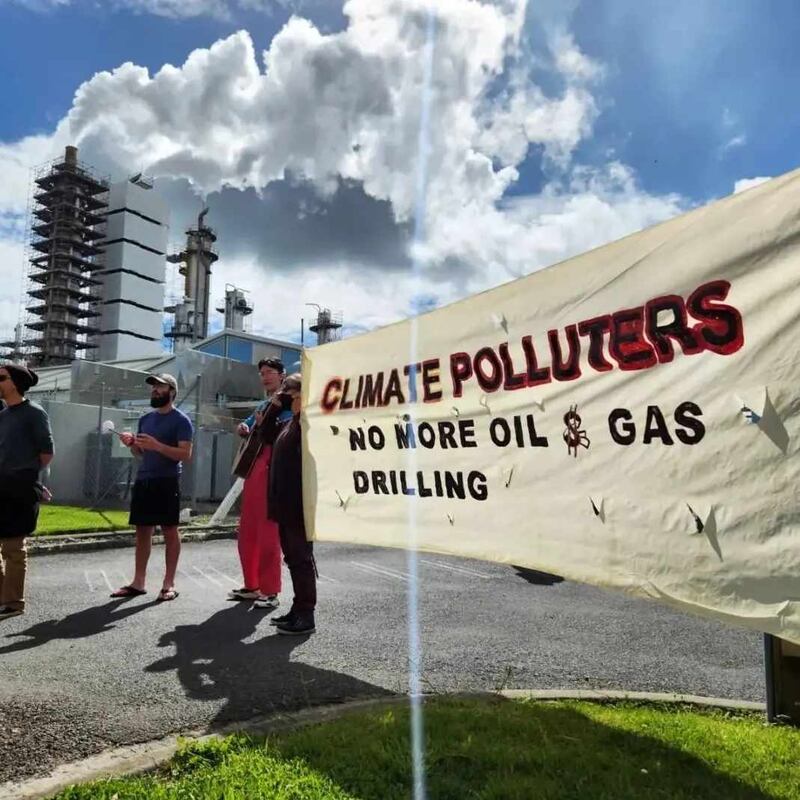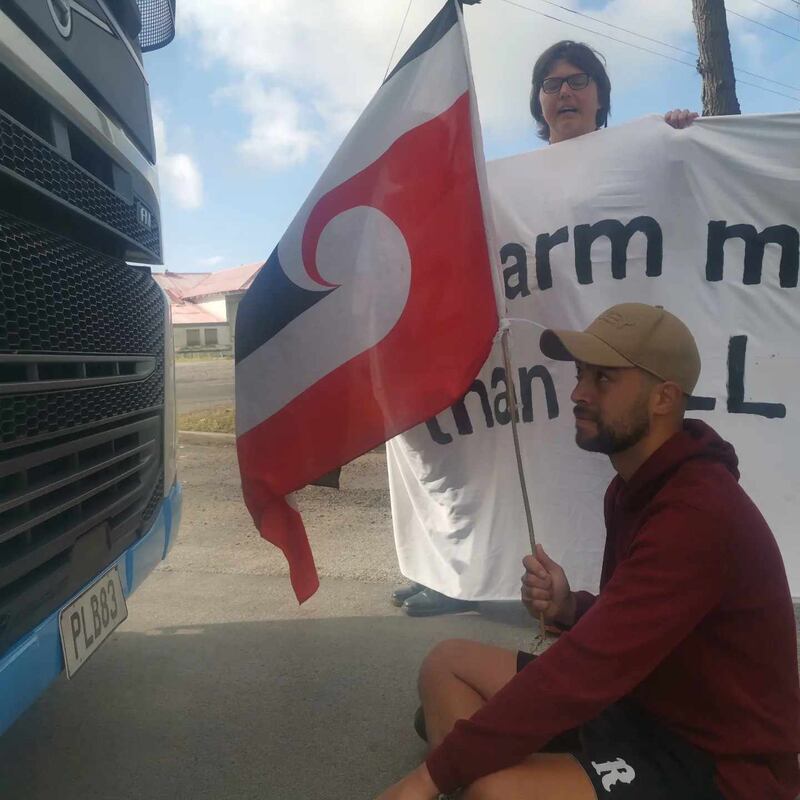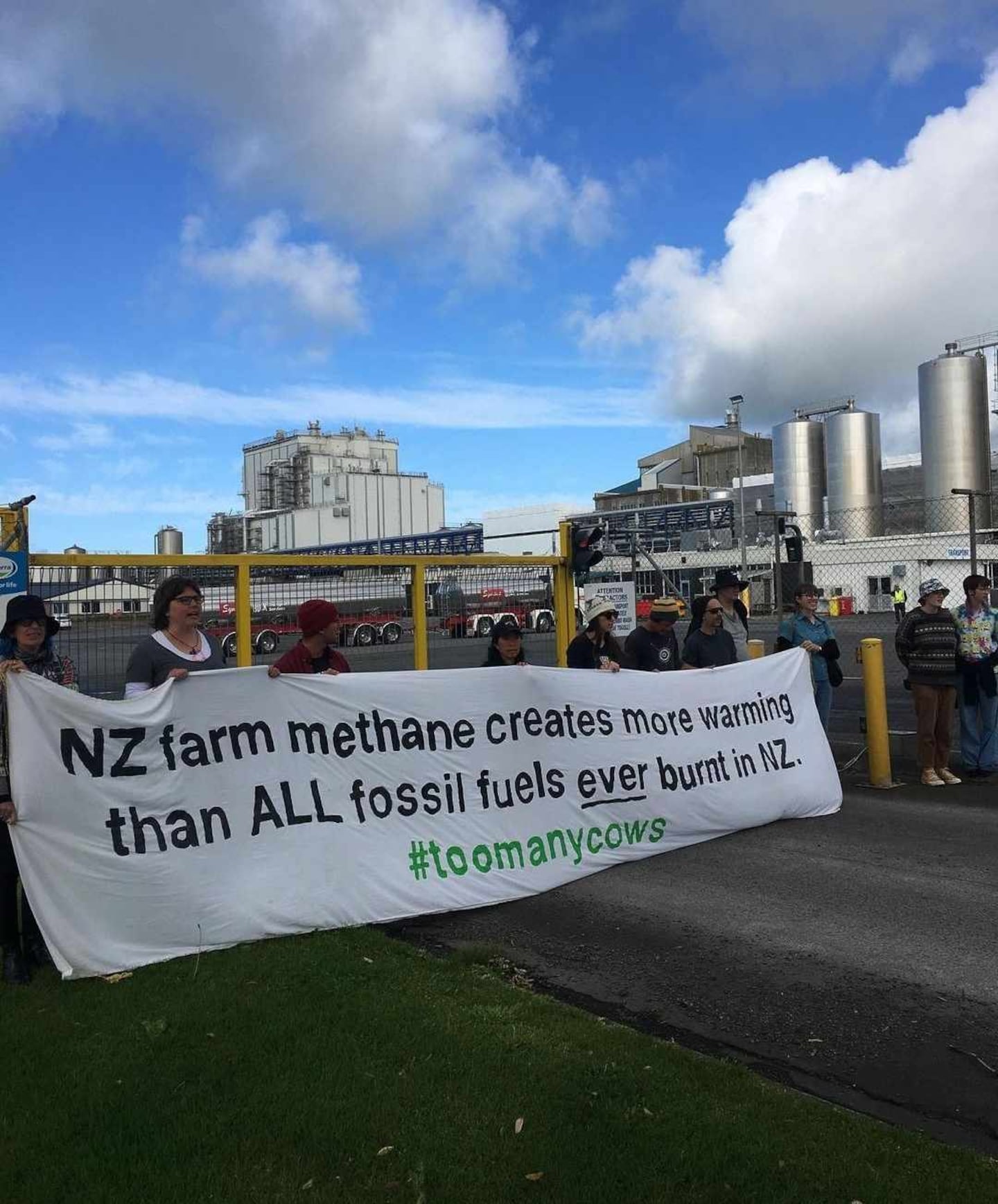On Sunday morning (November 5) the Whareroa Fonterra dairy factory, the Kapuni Ballance fertiliser factory and the Todd Energy gas plant were all locked down simultaneously by a protest of 50-plus activists, to commemorate the invasion of Parihaka in 1881.
Tuhi-Ao Bailey (to Ngāti Mutunga, Te Āti Awa and Taranaki) of Taranaki Climate Justice, is a resident of Parihaka Pā. Bailey says, November 5, 1881, is when the colonial troops invaded Parihaka “to confiscate our land from the mountains to the sea, so we commemorate that day every year but this year we did something political.”
“So, we went out to cause some disruption, to get their attention, so that they know, the farmers, the truckers, the factory owners, that their industry is under scrutiny by social activists, and that we want them to transition, but the world needs to transition, and they need to go first because they are the worst polluters.”
Bailey says oil and gas exploration has been a major concern for iwi in Taranaki for decades.
“So, here in Taranaki, we’ve had oil and gas exploration production going on for decades. These industries feed the fertiliser factories, so the gas-(manufactured) fertiliser, and then the fertiliser of course feeds the farms, so the gas also feeds into the Whareroa dairy factory, which is the largest dairy factory in the southern hemisphere, taking milk from all the farms around this region, dehydrating it into milk powder, and then it gets trained and shipped around the world in plastic containers. So, they are the biggest culprits here in Taranaki.”

Bailey says that she and others have major concerns about the future of oil and gas exploration in the country and what plans the incoming government might have.
“We’re deeply worried and frustrated that National and in particular ACT, are going to open up the gates to oil and gas exploration. They’re going to open up the gates to more polluting from dairying and fertiliser, and it’s just going to get worse and all the good work we’ve been doing over the years is going to be undone and we’re going to see more floods, more wildfires, more bankrupt agricultural companies that the taxpayers are going to have to bail out,” Bailey says.
Bailey is happy to be in regular contact with the Greens and Te Pāti Māori, who she says ave offered much to the fight against climate change and major environmental issues nationwide.
“We’re always in communication with those two parties, and a lot of their people are in the climate justice movement. We align what we want, our demands and their policies, so yeah, we’re strong allies,” Bailey said.
Bailey says the objective of their protest was to send a clear message that New Zealand should not be sending 95% of our country’s best products overseas.
“We organised this process to highlight how climate change is connected to colonisation and the oil and gas, the dairy industry, the fertiliser industry companies are direct profiteers and polluters that arose from the confiscation of Māori lands to export resources to Europe to feed the people there. It needs to just really be shut down. Fossil fuels need to be shut down, big dairy needs to be shut down. She shouldn’t be exporting 95% of products overseas, we should be feeding our people here, protecting our forests and wetlands and reefs.”



